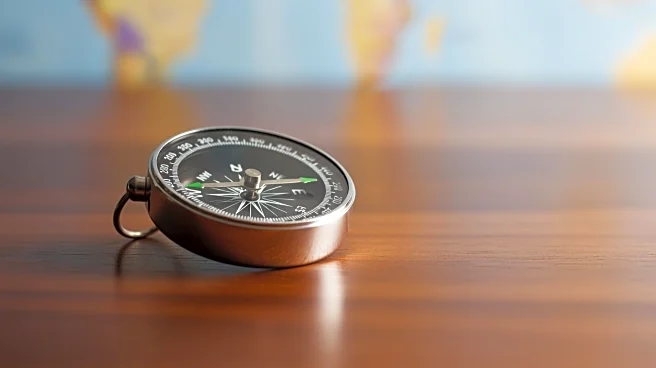What's Happening?
Nutrition apps are often used to track dietary habits, but many can lead to negative experiences such as guilt or rigid thinking due to calorie counting. Experts like Desiree Nielsen, RD, and Amber Young, MS, RDN, highlight the flaws in many popular apps that
focus on calorie tracking, which can result in problematic eating behaviors. However, there are apps that offer a more supportive approach to nutrition. For instance, Monash FODMAP Diet and FODMAP Friendly are recommended for individuals with specific digestive concerns, such as IBS, as they help identify foods that may cause digestive distress. These apps provide a database of foods and their FODMAP levels, assisting users in managing symptoms like bloating and stomach cramps. The emphasis is on using these tools to enhance dietary habits without judgment, promoting a healthier relationship with food.
Why It's Important?
The significance of this development lies in the potential impact on public health and individual well-being. By shifting focus from calorie counting to understanding food's impact on the body, these apps can help users develop healthier eating habits. This approach can reduce the risk of eating disorders and promote intuitive eating, where individuals learn to listen to their body's hunger signals. For those with digestive issues, such as IBS, these apps offer valuable insights into managing symptoms, potentially improving quality of life. The broader implication is a move towards more personalized and compassionate dietary management, which could influence how nutrition is approached in healthcare and wellness industries.
What's Next?
As awareness grows about the limitations of traditional calorie-counting apps, there may be increased demand for tools that offer a more holistic approach to nutrition. This could lead to the development of new apps that focus on intuitive eating and personalized dietary management. Nutritionists and dietitians might increasingly recommend these types of apps to clients, potentially influencing the market and encouraging app developers to innovate in this space. Additionally, there may be further research into the effectiveness of these apps in improving dietary habits and overall health outcomes.
Beyond the Headlines
The shift towards apps that promote intuitive eating and personalized nutrition management reflects broader cultural changes in how society views food and health. This trend aligns with growing interest in mental health and the recognition of the psychological aspects of eating. It also highlights the importance of technology in providing accessible health solutions, potentially democratizing access to nutrition advice and support. As these apps gain popularity, they could contribute to a more informed public, better equipped to make health-conscious decisions.














